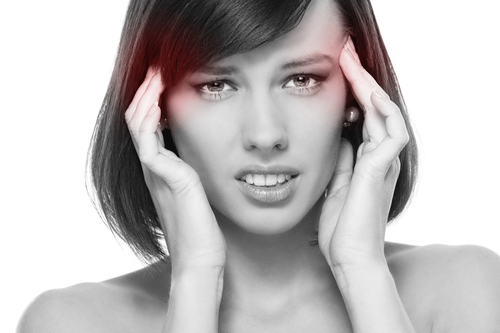Psychomania: Are all pains psychological?
mis à jour le 14 July 2015 à 18:31Today, as soon as we feel pain, we look for psychological reasons. But, by wanting to review our own story for explanation, we sometimes forget that it is also necessary to factor in the biological aspect.
Since a few years ago, it is no longer possible to escape the wave of psychologism which eats away at our society, and especially, at our health. Whether the issue is big or small, we want to find an explanation for our troubles in order to master the situation.
We always have symptoms to interpret. Lumbar vertebrae pains? It could be because we have too many things to manage. Eczema rash? It could be because we are not comfortable with ourselves. Respiratory difficulties? It could be because we feel suffocated at work and at home. Nothing is harmless to our anxious mind - when we feel pain, it is because we are not fine. For some people, the most serious diseases would be survival strategies developed by our body in response to an emotional conflict. As if we could be cured, armed only with will and self-analysis.
Absurd? Nevertheless. “How many times do we hear that a person died from cancer because he/ she did not fight hard enough?” That is the claim of Bruno Halioua, dermatologist and medical historian.
A need for alternative
Thierry Janssen, a psychotherapist and ex-surgeon, regularly experiences the dangers of overusing “psychosomatic reasons” in his consultations. He saw cancer patients deciding to stop recognised treatments (radiotherapy, chemotherapy) until they find “a sense” to their pathology, even if this means aggravating their condition, or hastening their deterioration. Even if it is actually proven that the psyche can influence the body, how can such absurdities happen, and how can we be so neglectful of the biology behind it?
Why are we so naive, even when the psychosomatic doctors warn us to be careful and not neglect biology? “We should ask this question to the field of conventional medicine,” answers Thierry Janssen. “Conventional medicine is sometimes so inhuman and brutal. When we suffer and are vulnerable, how can we resist the appeal of a radical alternative? If doctors took time to treat their patients as humans rather than anatomical objects, ill people may be less be tempted to fetch easy answers from certain health gurus.”
Does psychosomatic medicine represent a successful market?
One of its main dangers is that it encourages the guru’s apprentices to give speeches that are as attractive as they are deceptive. The first studies of psychosomatic medicine, conducted at the beginning of the twentieth century, were funded by insurance companies, to better seize all of its mercantile potential. Business is business… and, a century later, the psychosomatic medicine industry is as successful as ever.
Evidence of this can be found in bookshops, with promising titles filling the shelves: "Tell me where the pain is; I will tell you why." "The disease tries to cure me." "And if the disease was not a coincidence…"
The real specialists regret the nonsense of those words and the people’s credulity. “We should understand that the human being is an inseparable entity. There is no psyche on one side and the body on other,” concludes Thierry Janssen, who dreams about a medicine of life rather than of disease. It is this global dimension, so important to Chinese, Ayurvedic, Aboriginal or even Navajo traditions, which we need to restore in order to avoid overreacting.”And, as an ultimate advice to help us to better look after ourselves: “listen to your body and put things in perspective. If 75 to 80% of the diseases are actually linked to stress, that by no means refers to the unique cause of all our pain.”
Stéphanie Torre
Read more:
Does stress cause breathing difficulties?
Is arterial high blood pressure an indicator of stress?
Are back problems psychologically correlated?
Psychotherapist’s opinion: “Every pathology is due to a complex imbalance.”
Testimony: “Hypnosis helped me overcome my head and stomachaches.”
Testimony: “I controlled my psoriasis thanks to psychoanalysis.”
Testimony: “I relieved my back by learning to breathe and doing stretching exercises.”




